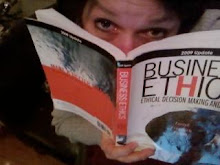Hi Ya'll! Ha! Now, won't it be funny when I move back North next week and I'm still saying things like Ya'll? Well, you can't live in the South for 5 years without picking up a few local phrases here and there, right? One of my all time favorite sayings down here in the South is: "Bless Your Heart" - and the jury (in my mind at least!) is still out as to precisely what that means... but, I digress!
What I really wanted to talk about today is the Beth Moore book I just finished reading called So Long, Insecurity: You've Been a Bad Friend to Us
Review From Publisher's Weekly:
Prolific Bible teacher and women’s ministry leader Moore (Get Out of That Pit) moves away from her characteristic dead-on expositions of scriptural principles in her newest; the topic is insecurity, and the content, she admits, is close to an autobiography. Moore, always transparent with her own personal struggles, is refreshingly so throughout this text. Readers will be chortling in laughter one moment and sucking air the next as Moore exposes the many faces of female insecurity. The author names and claims each one, then defuses every bit of power these nonsensical inner voices possess by countering their lies with God’s truth. Women, no matter what their age, battle against advertising’s siren call for unattainable physical perfection; the habit of making a man’s love the ultimate validation; and the worldly definition of success as money, power, and status. Moore uses personal essays, women’s true confessions, expressive prayers, and lots of commonsense suggestions to jar women out of their insecure rut. Readers will delve into this work and find themselves comfortably uncomfortable, and this is a very good thing.
Prolific Bible teacher and women’s ministry leader Moore (Get Out of That Pit) moves away from her characteristic dead-on expositions of scriptural principles in her newest; the topic is insecurity, and the content, she admits, is close to an autobiography. Moore, always transparent with her own personal struggles, is refreshingly so throughout this text. Readers will be chortling in laughter one moment and sucking air the next as Moore exposes the many faces of female insecurity. The author names and claims each one, then defuses every bit of power these nonsensical inner voices possess by countering their lies with God’s truth. Women, no matter what their age, battle against advertising’s siren call for unattainable physical perfection; the habit of making a man’s love the ultimate validation; and the worldly definition of success as money, power, and status. Moore uses personal essays, women’s true confessions, expressive prayers, and lots of commonsense suggestions to jar women out of their insecure rut. Readers will delve into this work and find themselves comfortably uncomfortable, and this is a very good thing.
I read this life altering book along with seven other woman from my church. We met weekly to discuss what we had read and to share our thoughts, feelings and experiences with each other. We followed along online at the LPM blog and answered discussion questions that were specific to each of the chapters we had read that week.
Insecurity is toxic and destructive and robs more joy from the lives of women (and men too!) than probably anything else I can think of! It ruins lives, destroys relationships and basically prohibits you from living your life to its fullest!
I highly recommend this book, and if at all possible, I also suggest you look for a site near you that is hosting the So Long Insecurity Live Simulcast on Saturday, April 24, 2010. Click HERE to find a host site near you!
Hopefully, a few of the lovely ladies from the study group I attended will pop on here and leave some comments as to how this book and study has impacted their lives. I can attest that for me, this book has given me the knowledge I needed as well as exposing the power and strength I never knew was there all along. I am now ready to continue the battle against insecurity all the way to its defeat!
Thank you for stopping by today! If insecurity is an issue that you struggle with, I hope you'll pick up a copy of this book and learn how you too can win the battle!
Your POSITIVE thoughts and comments are always welcome. Please keep comment 'language' family-friendly. Thank you in advance for your feedback!









